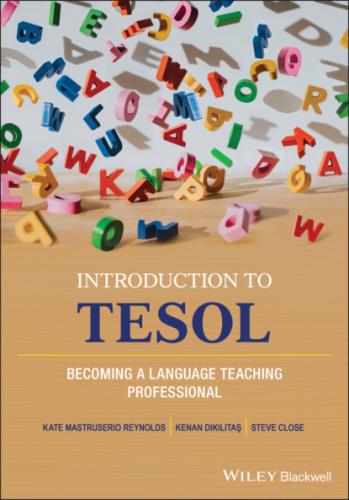379 369
380 370
381 371
382 372
383 373
384 374
385 375
386 376
387 377
388 378
389 379
390 380
391 381
392 382
393 383
394 384
395 385
396 386
397 387
398 388
399 389
400 390
401 391
402 392
403 393
404 394
405 395
406 396
407 397
408 398
409 399
410 400
411 401
412 402
413 403
414 404
415 405
416 406
417 407
418 408
419 409
420 410
421 411
422 412
423 413
424 414
425 415
426 416
427 417
428 418
429 419
430 420
431 421
Acknowledgments
We would like to acknowledge the contributions of countless professionals in the field of TESOL from whom we have had the privilege of learning. Thank you to all of our students and colleagues who we have had the good fortune to collaboratively construct our understandings and grow academically alongside.
A big thank you to the following educators who contributed their insights and voices to this text. Your voices beautifully illustrated the intentional instruction and assessment practices you employ and your dedication to English learners. English language learners worldwide benefit because of your professionalism!
Ami Christensen
Angela Bell
Benardo Tupas Panzo
Connie “Alia” Mitchell
Elizabeth Kitzmann
Jing Jing “Summer” Jiao
Kara Shore
Katie Lembra
Mari Bodensteiner
Matthew Ventiri
No text can be written without the support and patience of one’s family and friends, and cookies. We would like to say thank you specifically to those who have heard the word “book” too many times this year.
Maddy Reynolds
Molly Vogt
Sherry Draeger
Our friends and families
Introduction
This textbook is an introduction to the profession of TESOL (teachers of English to speakers of other languages) from a bird’s eye point of view. We wanted newcomers to feel welcomed to the profession through an exploration of the breadth and scope of the field. We believe that newcomers will feel connected through understanding the knowledge base, skills, beliefs, and attitudes that TESOL educators have.
This is a descriptive textbook, which will help any prospective TESOL educator understand the interdisciplinary knowledge base that TESOL professionals share as well as the opportunities and subfields within the discipline. It is meant for educators who are hoping to learn more about TESOL or who are considering entering the field. It covers almost all areas of TESOL in a readable manner for students who are inclined to enter the field or teachers who are already in the field without formalized teacher preparation. It presents an opportunity to understand the numerous specializations and niches in the field that can be explored in TESOL. For example, one could teach first grade students bilingually in Egypt, foreign language instruction of English in Russia, academic second language writing at universities in English-speaking contexts, or research language patterns employed cross-culturally by different genders.
The major goal of this text is to share essential facts while providing basic information about contexts for teaching, our learners and their goals, professional organizations, linguistics, second language acquisition theories, instructional practices, and professional development. It is designed to help those interested in TESOL situate and commence their studies and research, and orient them so they know where to find resources, how to engage in the profession, and how to grow over the course of a career. It spans English as a second language (ESL) and English as a foreign language (EFL) contexts as the authors are experienced teacher educators in both contexts. We hope it helps all readers identify where to enter the profession in ways that are inspiring and interesting.
This book provides multiple perspectives on teaching and learning a second language, and uses language that new TESOLers can understand, thereby building basic knowledge about the field of TESOL. We hope to offer guidance for the newcomer from the perspective of this is what TESOL educators do and why. Not every instructional or assessment practice works for every student in every context, so it is our intention to provide information about the choices educators can make and align them with potential future contexts and learner populations. We intend our guidance to be descriptive of instructional and assessment practices, without prescribing them as the only way to approach these instructions and assessments. We hope that everyone who reads this book will find the ideas suggested to be stimulating. We hope, too, that readers will be creative in their teaching and learning and share their innovations with the field, so it continues to develop in the rich manner it has.
The learning theory that informs our perspectives on learning and teaching is Constructivism. Constructivism is the theory that individuals construct, or transform, their understandings of meanings and concepts through learning experiences (von Glasersfeld, 2005). This language is used throughout the text. However, we recognize that many of the practices, for example, teaching language skills or developing lesson plans, spring from Bloom’s mastery learning model (1976). This text, therefore, is a hybrid of both educational perspectives.
In an odd way, this text is a love letter to a field of study, TESOL, second language learning, and English language learners (ELLs). In total, we have been studying and teaching in the field of TESOL for 80 years. That sort of dedication reveals a deep commitment to our ELLs and teacher candidates as well as the subject, the profession, and the processes involved in principled second language teaching and learning. It is our sincere hope that we convey in this text the wonderful, fascinating complexities and diversity of the field and inspire you to join us to engage
